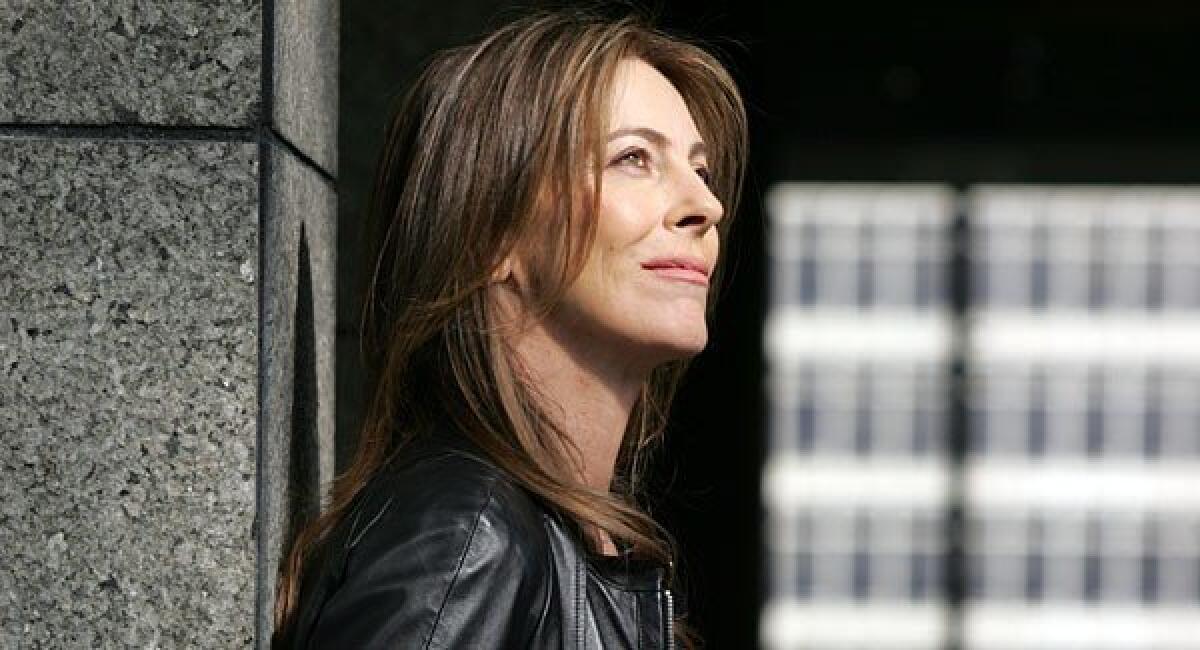Kathryn Bigelow addresses ‘Zero Dark Thirty’ torture criticism

For a long time, measuring more years than I care to count, I thought the movie that became “Zero Dark Thirty” would never happen. The goal, to make a modern, rigorous film about counter-terrorism, centered on one of the most important and classified missions in American history, was exciting and worthy enough, or so it seemed. But there were too many obstacles, too many secrets, and politicians standing in the way of an easy path.
Somehow, though, thanks to the great persistence of my filmmaking team and an enormous dose of luck, we got the movie made and found studio partners with the courage to release it.
Then came the controversy.
OSCARS 2013: Complete nominee list | Reactions | Trivia | Ballot | Snubs & surprises
Now that “Zero Dark Thirty” has appeared in cinemas nationwide, many people have asked me if I was surprised by the brouhaha that surrounded the film while it was still in limited release, when many thoughtful people were characterizing it in wildly contradictory ways.
The Times asked me to elaborate on recent statements I’ve made in response to these issues. I’m not sure I have anything new to add, but I can try to be concise and clear.
First of all: I support every American’s 1st Amendment right to create works of art and speak their conscience without government interference or harassment. As a lifelong pacifist, I support all protests against the use of torture, and, quite simply, inhumane treatment of any kind.
But I do wonder if some of the sentiments alternately expressed about the film might be more appropriately directed at those who instituted and ordered these U.S. policies, as opposed to a motion picture that brings the story to the screen.
VIDEO: The Envelope - Directors Roundtable
Those of us who work in the arts know that depiction is not endorsement. If it was, no artist would be able to paint inhumane practices, no author could write about them, and no filmmaker could delve into the thorny subjects of our time.
This is an important principle to stand up for, and it bears repeating. For confusing depiction with endorsement is the first step toward chilling any American artist’s ability and right to shine a light on dark deeds, especially when those deeds are cloaked in layers of secrecy and government obfuscation.
Indeed, I’m very proud to be part of a Hollywood community that has made searing war films part of its cinematic tradition. Clearly, none of those films would have been possible if directors from other eras had shied away from depicting the harsh realities of combat.
On a practical and political level, it does seem illogical to me to make a case against torture by ignoring or denying the role it played in U.S. counter-terrorism policy and practices.
GOLDEN GLOBES 2013: List | Red Carpet | Winners | Show moments | Quotes
Experts disagree sharply on the facts and particulars of the intelligence hunt, and doubtlessly that debate will continue. As for what I personally believe, which has been the subject of inquiries, accusations and speculation, I think Osama bin Laden was found due to ingenious detective work. Torture was, however, as we all know, employed in the early years of the hunt. That doesn’t mean it was the key to finding Bin Laden. It means it is a part of the story we couldn’t ignore. War, obviously, isn’t pretty, and we were not interested in portraying this military action as free of moral consequences.
In that vein, we should never discount and never forget the thousands of innocent lives lost on 9/11 and subsequent terrorist attacks. We should never forget the brave work of those professionals in the military and intelligence communities who paid the ultimate price in the effort to combat a grave threat to this nation’s safety and security.
Bin Laden wasn’t defeated by superheroes zooming down from the sky; he was defeated by ordinary Americans who fought bravely even as they sometimes crossed moral lines, who labored greatly and intently, who gave all of themselves in both victory and defeat, in life and in death, for the defense of this nation.
PHOTOS AND MORE
VIDEO: The making of ‘Argo,’ ‘Les Miz’ and more
ENVELOPE: The latest awards buzz
PHOTOS: NC-17 movies: Ratings explained
More to Read
Only good movies
Get the Indie Focus newsletter, Mark Olsen's weekly guide to the world of cinema.
You may occasionally receive promotional content from the Los Angeles Times.










